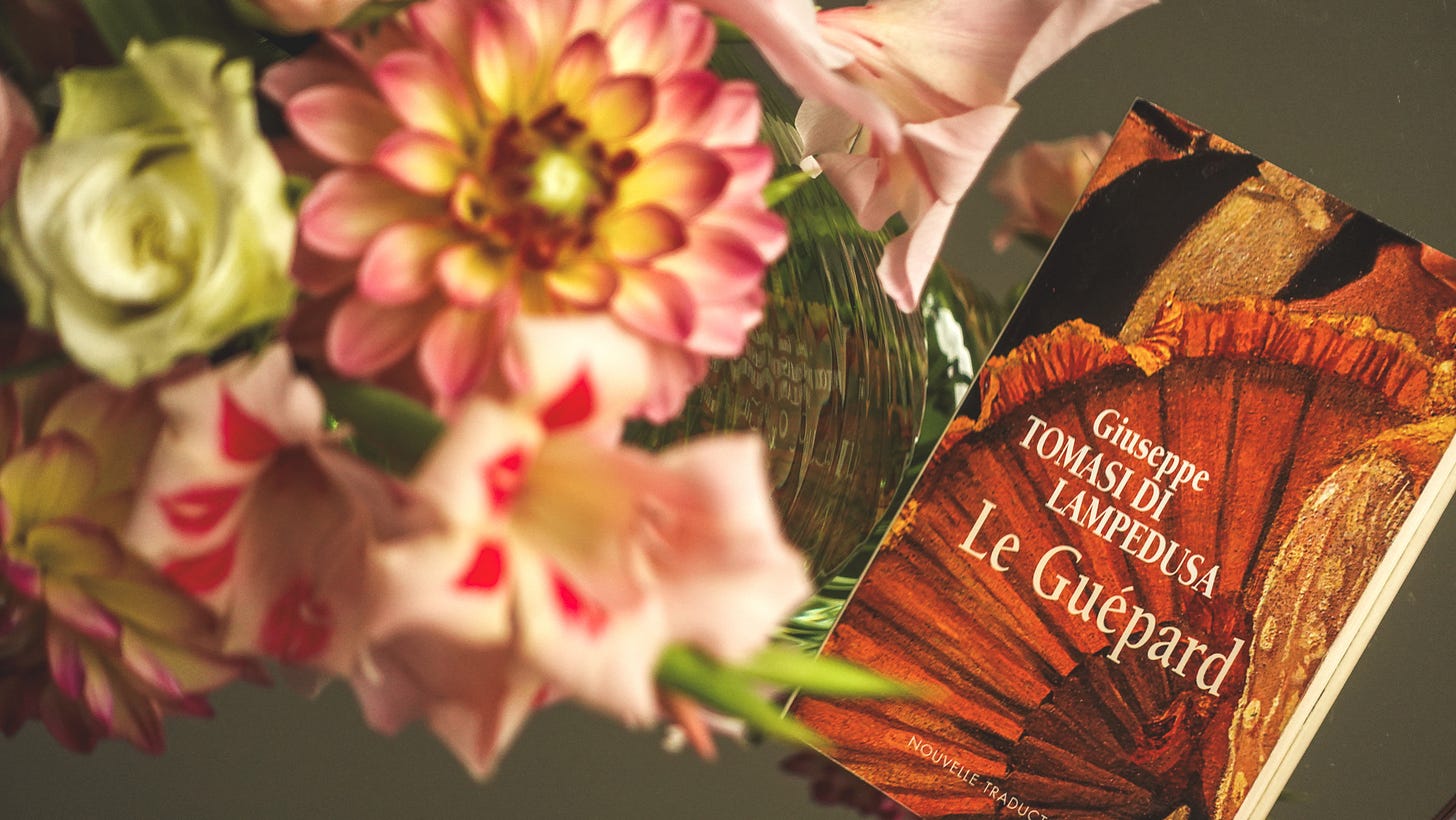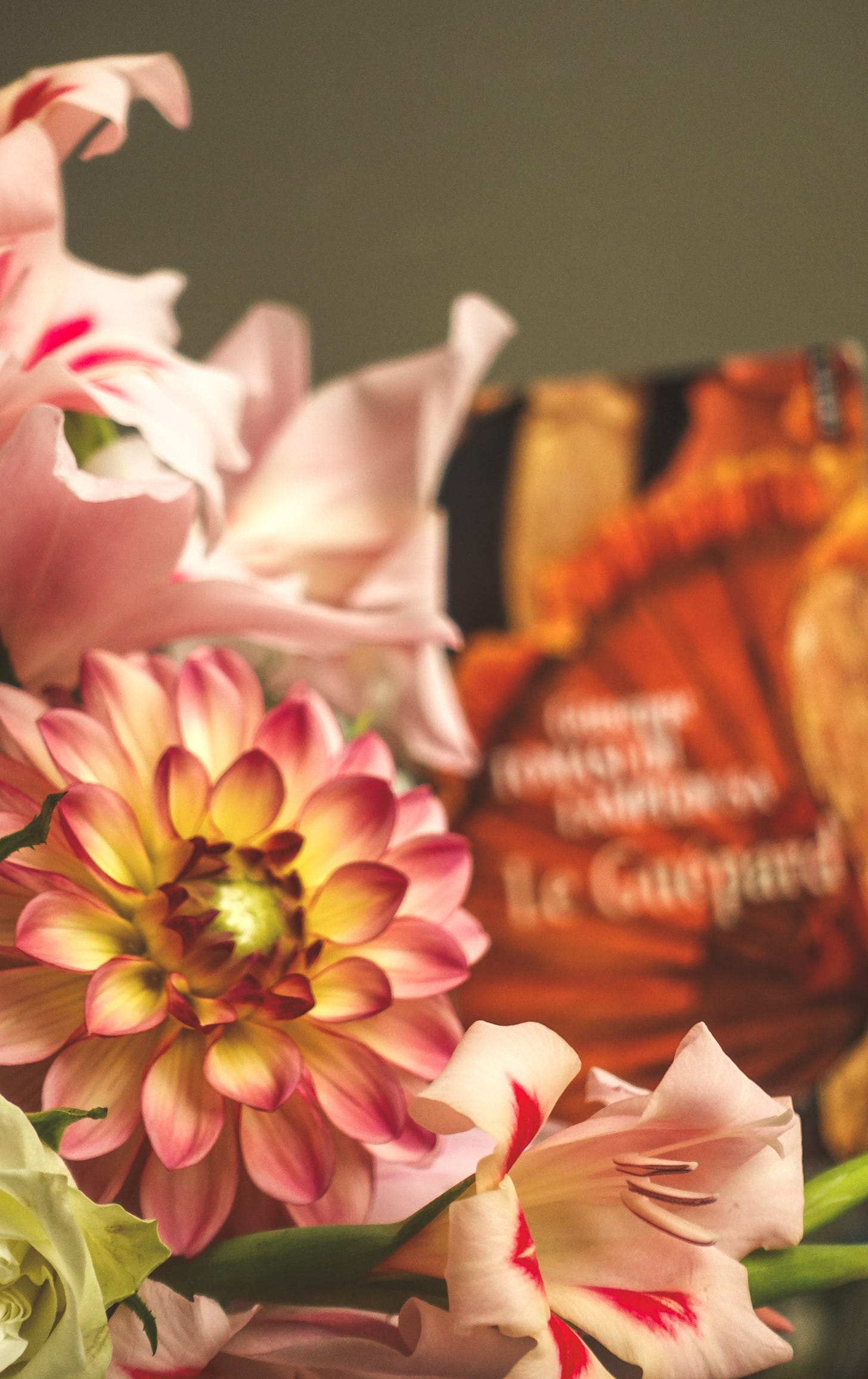“In Sicily it doesn’t matter whether things are done well or done badly; the sin which we Sicilians never forgive is simply that of ‘doing’ at all.”
― Giuseppe Tomasi di Lampedusa, The Leopard
I discovered this line while reading The Leopard during a particularly frantic period of my life, when my calendar looked like a Tetris game and every moment felt accounted for. Lampedusa's Sicily suddenly seemed like another planet — one where the very act of doing was considered suspect, where the rhythm of life moved to a different drummer entirely. It stopped me cold, this idea that a whole culture might find virtue in what we've been taught to see as vice.
We live in a world obsessed with productivity, where idle moments feel like failures and rest requires justification. Even our vacations have become projects to optimize, our weekends scheduled down to the hour. But what if we've gotten it backwards? What if the Sicilians in Lampedusa's novel understood something we've forgotten — that there's a profound intelligence in stillness, a creativity that only emerges in the spaces between action?
This isn't about laziness, though the two are often confused. Laziness is avoidance, a turning away from life. True idleness — what the Italians call dolce far niente, the sweetness of doing nothing — is actually a turning toward something deeper. It's the difference between collapsing in exhaustion and choosing to lie in a field and watch clouds move across the sky. One depletes; the other replenishes.
I've been thinking about this distinction more and more as August settles over Paris like a warm blanket. The city empties, the pace slows, and suddenly there's permission to exist without agenda. These are the days when I remember what it feels like to let my mind wander, to follow a thought like a cat following a butterfly — not because it leads anywhere useful, but because the following itself is a form of nourishment.
In these unhurried moments, I notice things I miss when I'm rushing: the way afternoon light changes color as it travels across my apartment, the particular silence that comes after rain, the satisfying weight of a book in my hands when I'm not reading for research or improvement but simply for the pleasure of being carried away. These observations don't produce anything measurable, yet they feel essential — like tending to some inner garden that flourishes only when left alone.
There's something almost rebellious about this in our achievement-oriented culture. We're taught that value comes from output, that worth is measured in accomplishments. But what grows in the fertile soil of idleness can't be quantified. It's in these seemingly empty moments that unexpected connections form, that solutions to problems we didn't know we were working on suddenly appear, that we remember who we are beneath all our roles and responsibilities.
The Sicilian wisdom in Lampedusa's novel goes even deeper than this. It suggests that constant doing is not just unnecessary but actually harmful — a kind of violence against the natural rhythm of existence. While the rest of Europe bustled with ambition and industry, Sicily maintained its allegiance to a different tempo, one that honored the spaces between efforts as much as the efforts themselves.
This resonates with something I've noticed about my own creative process. My best ideas never come when I'm straining for them. They arrive during the in-between moments — while washing dishes, walking aimlessly through the city, or simply sitting with my morning coffee before the day demands begin. It's as if the mind needs these gaps to process, to synthesize, to make the unexpected leaps that logic alone cannot achieve.
August teaches this lesson beautifully. The month itself seems designed for contemplation, with its long days that stretch into warm evenings, its invitation to move slowly, to let schedules dissolve. There's something about the quality of summer light, the way it lingers, that makes hurrying feel almost absurd. The earth itself seems to be resting, gathering energy for the seasons ahead.
Perhaps this is what Lampedusa's Sicilians intuited — that constant action disconnects us from the deeper currents of life, the universal energy that flows beneath our busy surface concerns. While doing keeps the blood pumping, it's in rest that we plug back into the source, like devices returning to their charging stations. In stillness, we remember that we're not separate from the world around us but part of its larger rhythm.
This doesn't mean abandoning responsibility or purpose. It means recognizing that the spaces between actions are not empty but full — full of possibility, of restoration, of the kind of deep listening that allows us to act from wisdom rather than mere habit. It means understanding that sometimes the most productive thing we can do is nothing at all.
As this August afternoon stretches before me, unhurried and unscheduled, I find myself grateful for Lampedusa's Sicilian rebels, who dared to find virtue in what others called vice. They remind me that there are different ways to be fully alive, that sometimes the richest experiences come not from doing but from simply being present to what is already here — the light, the silence, the endless generosity of time when we stop trying to fill it with tasks and instead let it fill us with its quiet gifts.




